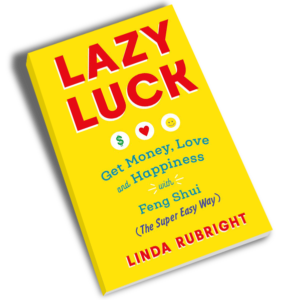Feng Shui can support many mental and physical issues. Here are 15 ways how Feng Shui can help reduce anxiety. Don’t feel you have to do all or even some of them. Start with something that seems feasible and go from there.
Ensure Doors are Properly Working
Doors are extremely important in Feng Shui. They are where energy enters and leaves; and how energy moves through the doorway of a room has a big impact on how the people in those spaces feel. Make sure the doors in your home especially the front door, the bedroom door of the person suffering from anxiety and the primary doors of the home work well, shut properly, look like they are in good condition, don’t squeak, squawk, creek etc.
Get Your Bed in a Good Position
Getting your bed in a position where you do not feel vulnerable will do wonders for how you sleep and your emotional well being. As you lay in bed you should be able to easily see the door; this typically means your bed is on the wall across from the door. Note however, your feet, and ideally your bed, should not be in direct alignment with the door. Also, if at all possible your bed should not be on the same wall as the door.
Sleep Against a Solid Wall
To reduce anxiety and to sleep well (which always helps reduce anxiety), your bed should be up against a solid wall. Avoid sleeping with your head up against a window. If you do sleep with your bed (and head) against a window, have window coverings or curtains and place red tape under the window sill or on top of the window frame.
Sit in the Right Place While Eating
Similar to your bed being in the best possible position, it is important in Feng Shui that the chair you (or the person with anxiety) sits in while eating does not make them feel vulnerable. The best place to sit during meals is with your back to a solid wall with a clear view of the door. If there is more than one door in the place where you eat. Face the door people would most likely come through if they were entering from the front door of the home.
Do a Few Quick Fixes if Your Stairs and Front Door are in Direct Alignment
Homes where you walk in the front door and there is a staircase immediately in front of you tend to feel as if they can’t hold onto their energy or perhaps that as soon as something comes into your life – it seems to quickly leave. If this is the situation in your home, put a red rug between the stairs and the door, place red tape above the door frame (on the inside of the home) and/or hang a crystal from the ceiling between the door and the stairs.
Do You Walk Into Your Front Door and Immediately See Into the Backyard or Look at a Long Narrow Hallway? If so, do this.
If you walk into your front door and immediately can see out the in the back yard this can cause anxiety in the home or feeling like you can’t get a grasp or hold onto your energy. To stop this, place something to visually grab your attention when you walk in the door. This could be adding a colorful rug, an attention grabbing light or chandelier, art work, plants and/or a curtain on the back window or door.
Hang Out in a Positive Place in the Living Room
Like the bed position and the position of where you sit while you eat, where you hang out in the living room or family room can either provide comfort or anxiety. To be in the most comfortable and least vulnerable place, sit in a chair or couch with arms on it, against a solid wall with the ability to clearly and easily see the door of the room. If there is more than one door to the room, sit so you can see the door someone would most likely enter if they were coming into the room from the front door of the home.
Avoid Any Negative Imagery in the House
Take a look at all the art, symbols, paintings and photos in your home. Do they make you feel light, cheerful, inspired or happy? Or do they feel dark, heavy, depressing or depleting? Imagery, no matter how little, can have an enormous impact on how the people in the home feel, to the extent possible, remove, donate, sell or throw away imagery that is not reflective of the mood you want everyone in the home to have.
Clutter
Clutter is the arch enemy to health and well being. This is not only somewhat common sense, it is also scientifically proven that clutter causes anxiety and other mental and physical issues. Start with the room you use most or your bedroom and get rid of everything you don’t use yearly or love dearly. Doing this one thing alone will likely have a tremendous impact on emotional well being.
Get Rid of Anything that Brings Up Bad Memories
If you want things to be good – the easiest thing to do is get rid of the bad. To the extent possible, get rid of all objects, mementos, symbols or reminders of bad times, hard times, not-so-wonderful people and memories you would prefer to forget–or at least–not be reminded of.
Don’t Have Heavy Objects, Art, Shelves, etc. Hanging Over You
People who sleep, work, eat or relax under heavy art, shelving, furniture, storage etc. frequently feel as if they walk around the world with “something hanging over them”. To get rid of this feeling, try moving those heavy things elsewhere or rearranging the furniture so you are not consistently sitting or sleeping under them.
Avoid Having a Lot of Downward Things (or Up and Down) Things
What Feng Shui experts frequently see in homes of people who frequently feel down, uneasy, anxious or as if their lives are topsy turvy are 1) imagery or symbols of things going up and down (think balloons or planes) 2) imagery or symbols of things that are not in their natural order e.g., an upside down image, a piece of art with a fish above the clouds 3) imagery or symbols of downward things e.g., staircases, waterfalls, snow falling, rain falling etc.
No Water or Images of It Above You
Love water? The beach? Waves? Lakes? The ocean? Me too! And if I can’t have the real thing I love having pictures, art or symbols of it. However, it is really important that if you do have these things that they are not “hanging above you”. People who have “water” above them while the sleep often feel as if their life and/or finances are under water. Keep all water and symbols of it at eye level and not immediately above where you spend a lot of time.
Introduce Soothing Colors, Reduce Energetic Colors
If you want to reduce your anxiety take a look at the colors in your home. Are they soothing (lighter colors, earth tones, pastels) or energetic colors such as reds, bright tones, maybe even towards fluorescent or iridescent? If you want to feel calm surround yourself with colors that also feel the same.
Go Sit on the Earth for at Least 15 Minutes a Day
Nothing helps us feel grounded – more than, ahem, the ground. If you are feeling especially uneasy, ungrounded, anxious go lay under a tree, go sit in the grass or go walk barefoot in your backyard for 15 minutes.
Add Photos of Nature
If you can’t be out in nature, bring nature to you. Photos of the outdoors have been proven to relax people. While you work to get negative images out of your home, also work to bring positive pictures of nature – in.
Sleep in the Back of the House
People who sleep in the front of the house often feel more anxious than those who sleep in the back of the home. The energy of the front of the home is better for higher energy activities such as the family room or office. Sleeping in the front of the home can make people feel exposed, vulnerable or suffer from poor sleep due to the energy coming from the street and the front of the home.
Sit at a Desk with Your Back to the Wall Where You Can Clearly See the Door
Like where you sleep, eat and hang out – how you sit at your desk can have a major impact on whether you feel strong and empowered or weak and anxious. The best position to sit in is with your back to a solid wall where you can clearly see the entrance to the room. If you must sit facing a wall (many people who sit at desks that face walls not only feel anxious and vulnerable but also have a hard time getting opportunities to come their way), place a mirror in front of you (or get a clip on desk mirror) so you are able to see anyone who would come up behind you.






